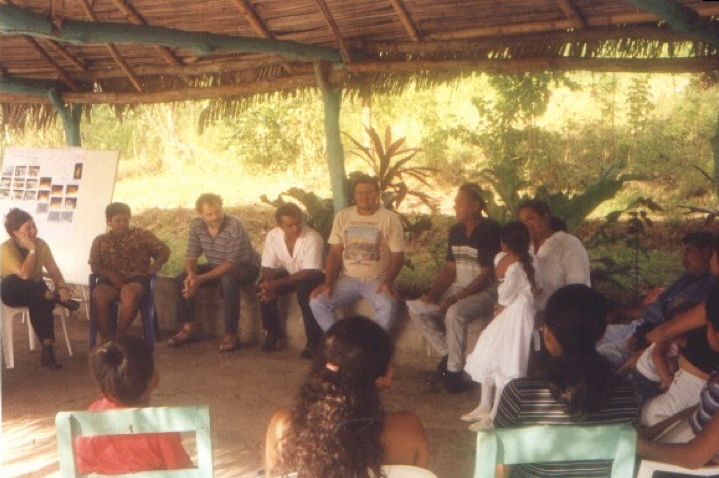 Symposium: Ecomuseums 2012. Foto van Museo Solentiname
Symposium: Ecomuseums 2012. Foto van Museo Solentiname Symposium: Ecomuseums 2012
The ecomuseum movement has its origins in late 1960’s France when the roles museums can play in linking people, their heritage expressions and places, as well as affecting social change, were examined. At this time, traditional museum activities, which centered on the collection of heritage to be interpreted by curators and other museum professionals within a museum building, were viewed as both limited and exclusive in approach. In more recent decades, ecomuseums have been established throughout the world and are guided by a variety of differing aims and objectives. For example, an ecomuseum may resemble a more conventional museum in appearance or, in other cases, an open–air community-controlled heritage project, depending on the place.
It can be considered that this wide range of ecomuseological and community-based museological initiatives demonstrates an international interest in alternative heritage management approaches. For this reason, the Ecomuseums 2012 conference seeks to bring together scholars, researchers, architects and heritage professionals to discuss the commonalities, differences and future of safeguarding practices that are holistic and community oriented in scope. Papers may discuss issues pertaining to the following sub-themes:
1. Community-based museological approaches: challenges, opportunities, practice;
2. The evolution and geographical diaspora of ecomuseum practices;
3. Beyond ecomuseums – Sociomuseology, its theory and practice;
4. Place, communities and heritage – relationships and ecomuseological interventions;
5. Nature, culture and communities – making connections through ecomuseology;
6. The economuseum movement – conserving traditional crafts;
7. Tourism, environment and sustainability – ecomuseological approaches;
8. Working with ethnic minorities – community museology and indigenous curation;
9. Intangible cultural heritage – its significance to local communities and how museums/ecomuseums can assist in safeguarding;
10. Architecture and spatial planning – ecomuseological and inclusive approaches;
11. Urban ecomuseums: conceptual issues, challenges and opportunities;
12. Industrial communities – inclusive approaches to conservation and interpretation of industrial heritage.
Early Stage Researchers willing to share the results of their recent work have the opportunity to submit papers to a special chapter dedicated to post-graduation projects and doctoral projects among others.
- Ecomuseums 2012
Links
Innovatief erfgoed / Museologie /